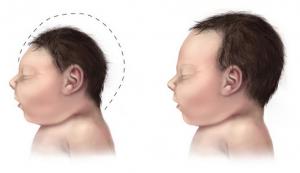Zika virusFlorida declares state of emergency in four counties with Zika virus
Florida Governor Rick Scott has declared a state of emergency in four counties where nine residents have been diagnosed with the Zika virus. Miami-Dade in south Florida, Hillsborough in Tampa Bay, Lee County in southwest Florida, and Santa Rosa County in Florida Panhandle have all been affected under the executive order. Health officials believe, however, that the residents became sick outside the United States.

Comparison of normal head size and Zika-induced microcephaly // Source: commons.wikimedia.org
Florida Governor Rick Scott has declared a state of emergency in four counties where nine residents have been diagnosed with the Zika virus.
ABC News reports that Miami-Dade in south Florida, Hillsborough in Tampa Bay, Lee County in southwest Florida, and Santa Rosa County in Florida Panhandle have all been affected under the executive order. Health officials believe, however, that the residents became sick outside the United States.
“Although Florida’s current nine Zika cases were travel-related, we have to ensure Florida is prepared and stays ahead of the spread of the Zika virus in our state,” Scott said in a statement on Wednesday.
“Our Department of Health will continue to be in constant communication with all county health offices, hospitals and the Federal Centers for Disease Control and Prevention (CDC). We know that we must be prepared for the worst even as we hope for the best.”
The virus is typically spread through mosquito bites, but health officials found one case in Texas in which the disease was transmitted through sexual intercourse.
On Monday, the World Health Organization (WHO) declared the outbreak a global health emergency.
“A coordinated international response is needed to improve surveillance, the detection of infections, congenital malformations, and neurological complications, to intensify the control of mosquito populations, and to expedite the development of diagnostic tests and vaccines to protect people at risk, especially during pregnancy,” WHO director general Margaret Chan said in a statement after Monday’s decision.
She added that the committee found “no public health justification” to restrict travel or trade to prevent the spread of the Zika virus.
“At present, the most important protective measures are the control of mosquito populations and the prevention of mosquito bites in at-risk individuals, especially pregnant women.”
